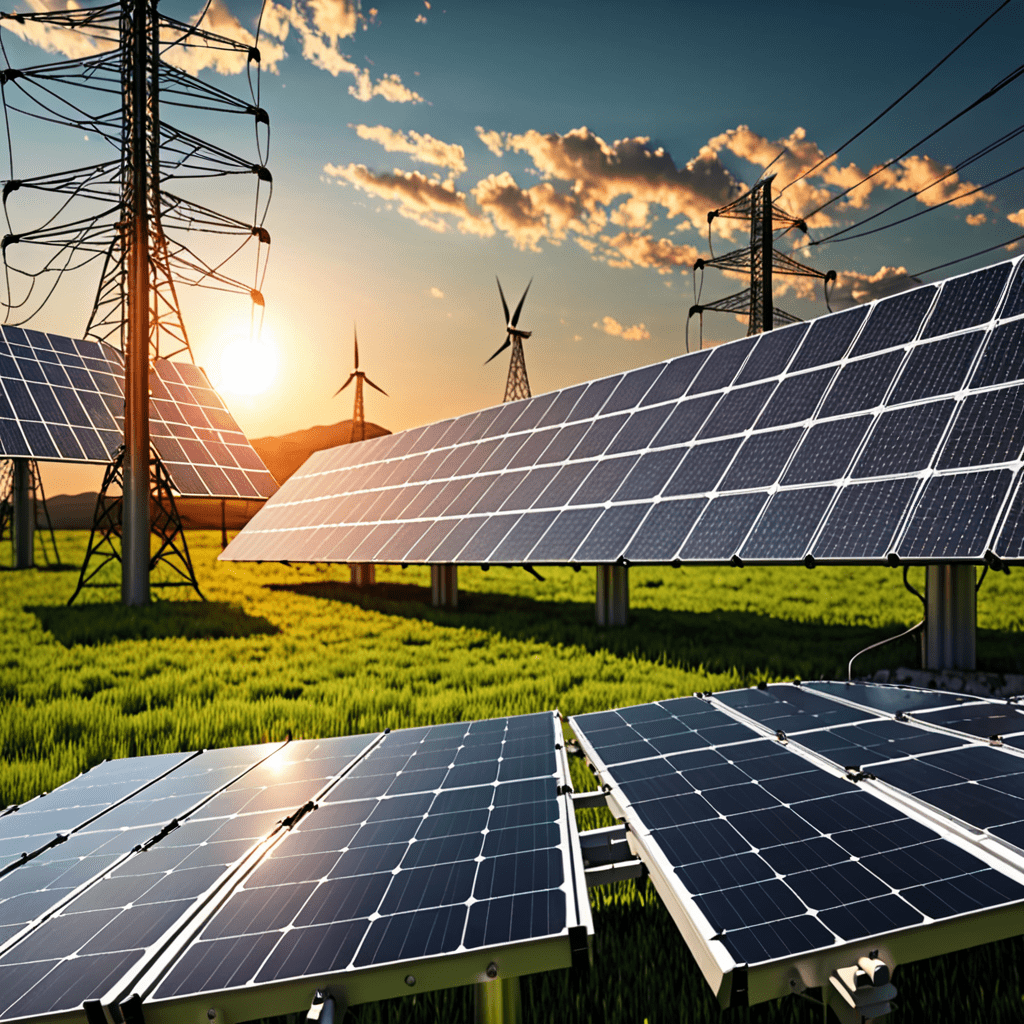
The Synergy of Solar Energy and Smart Grids
In recent years, the integration of solar energy into smart grid systems has gained significant attention due to its potential to revolutionize the way we produce and consume electricity.
Solar Energy: Harnessing the Power of the Sun
Solar energy, derived from the sun, is a renewable and sustainable source of power that can be harnessed using photovoltaic panels or solar thermal systems.
Smart Grids: Enhancing Energy Distribution
Smart grids refer to modern electricity networks that utilize digital communication technology to efficiently manage electricity production, distribution, and consumption.
Benefits of Integrating Solar Energy with Smart Grids
1. Improved Grid Efficiency: Solar energy can be distributed more effectively and integrated seamlessly into the grid.
2. Energy Reliability: Solar power reduces dependency on traditional fossil fuels, enhancing energy security.
3. Cost Savings: Integration of solar energy can lead to reduced operational costs and lower electricity bills for consumers.
4. Environmental Impact: Solar power is a clean energy source, reducing carbon emissions and promoting sustainability.
Challenges and Solutions
Despite the benefits, challenges such as intermittency of solar power and grid stability issues exist. Innovative solutions like energy storage systems and demand response programs help mitigate these challenges.
The Future of Energy: A Sustainable Path Forward
As countries worldwide strive to reduce carbon footprint and combat climate change, the integration of solar energy with smart grids offers a promising solution for a sustainable and greener future.
Conclusion
The integration of solar energy with smart grids represents a pivotal step towards a more efficient, reliable, and environmentally-friendly energy ecosystem. Embracing this synergy can pave the way for a brighter and cleaner energy future.
FAQ: Solar Energy and Smart Grid Integration
What is smart grid integration in relation to solar energy?
Smart grid integration refers to the incorporation of solar energy systems into the existing electrical grid infrastructure. It involves the use of advanced technologies to manage and optimize the generation, distribution, and consumption of solar power within the grid network.
How does smart grid integration benefit solar energy systems?
Smart grid integration enhances the efficiency and reliability of solar energy systems by enabling real-time monitoring, control, and communication between various grid components. This leads to improved resource utilization, reduced energy wastage, and better integration of renewable energy sources like solar power.
What technologies are commonly used for smart grid integration with solar energy?
Technologies such as advanced metering infrastructure (AMI), microgrids, energy storage systems, demand response mechanisms, and grid automation software play crucial roles in facilitating smart grid integration with solar energy systems. These technologies enable seamless coordination and optimization of energy flows within the grid.
What are the key challenges associated with solar energy and smart grid integration?
Challenges include grid stability issues due to intermittent nature of solar power generation, the need for grid modernization to accommodate bidirectional energy flows, cybersecurity concerns related to data exchange in smart grids, and regulatory barriers hindering the seamless integration of solar energy systems with the grid.

